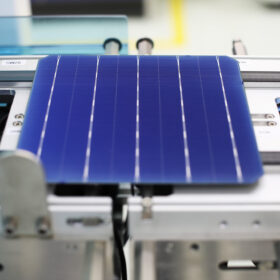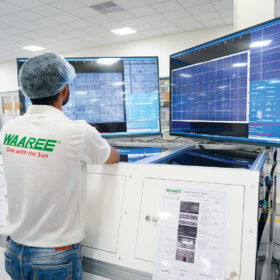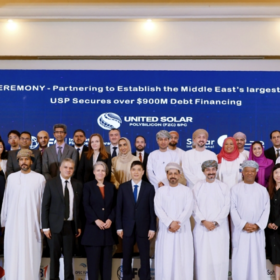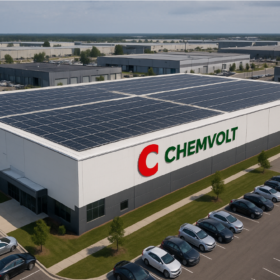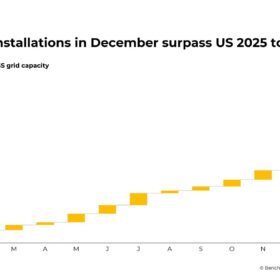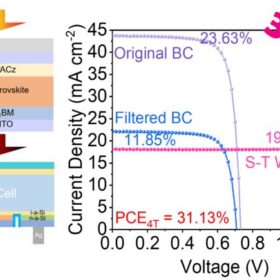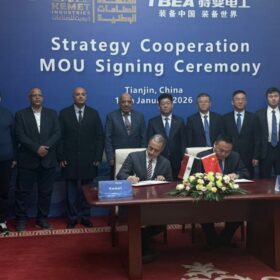More PV manufacturers expected to adopt copper metallization in 2026
Rising silver prices are pushing PV manufacturers toward copper-based metallization, with DK Electronic Materials targeting 2026 for large-scale deployment of high-copper paste solutions, while Fraunhofer ISE warns efficiency trade-offs remain unacceptable.
Waaree Energies posts record quarterly results
Waaree Energies Ltd reported revenue from operations of INR 7,565.05 crore in the third quarter of fiscal year 2026, marking a year-on-year increase of 118.81%. Profit after tax (PAT), after accounting for exceptional items, surged 118.35% YoY to INR 1,106.79 crore.
European PV market faces potential 2026 price shock from China export tax
China’s PV manufacturing sector is operating at full capacity ahead of an April 1 export tax change, contributing to module price increases of 20% to 30% in parts of the supply chain and raising risks for price-sensitive European commercial and utility-scale projects in early 2026.
Omani polysilicon factory reaches financial close
United Solar Holding has secured more than $900 million to complete the financing required for its 100,000 MT polysilicon manufacturing facility in Oman. Production is expected to begin during the first quarter of this year.
ChemVolt Global announces 5 GWh lithium-ion cell manufacturing project in Andhra Pradesh
Kuldeep Gupta-led ChemVolt Global has signed a memorandum of understanding (MoU) with the Government of Andhra Pradesh to establish a 5 GWh lithium-ion cell manufacturing gigafactory in the state, with a planned investment of INR 2,500 crore.
EU to ban Chinese inverters? – Commission proposal in Cybersecurity mulls ‘high-risk vendors-list’
The European Commission is revising its Cybersecurity Act. While presenting the proposals in European Parliament, the commission’s Executive Vice-President for Tech Sovereignty, Security and Democracy, Henna Virkkunen, said dependency on a very limited number of solar inverter suppliers could “pose a significant security risk.”
Global BESS demand jumps 51% in 2025 as installations top 300 GWh
Iola Hughes, Head of Research at Benchmark Mineral Intelligence, tells ESS News that 2026 is set to be another strong year for BESS, with forecast additions exceeding 450 GWh and no material supply constraints in sight. Meanwhile, the initial impact of rising lithium prices is already visible at the cell level, but the full effect has yet to ripple through to system pricing.
Chinese scientists build 31.13%-efficient perovskite-silicon tandem solar cell via 2D seeding agent
Researchers in China developed a novel two dimensional (2D) seeding agent to regulate crystallization in a 1.80-eV wide-bandgap perovskite film. A perovskite-silicon tandem device made with the resulting optimized subcell achieved an efficiency of 31.13%, outperforming a control device.
GCL, Cornex, TBEA to build solar manufacturing complex in Egypt
Egypt’s Kemet has signed three agreements with Chinese companies over the last week, covering plans for a 5 GW solar cell complex, a 5 GWh battery energy storage factory and Egypt’s first solar inverter factory.
Australia betting on new ‘strategic reserve’ to loosen China’s grip on critical minerals
The federal government has unveiled new details of its plan to create a $1.2 billion critical mineral reserve. Three minerals will initially be the focus: antimony, gallium and rare earths (a group of 17 different elements).
